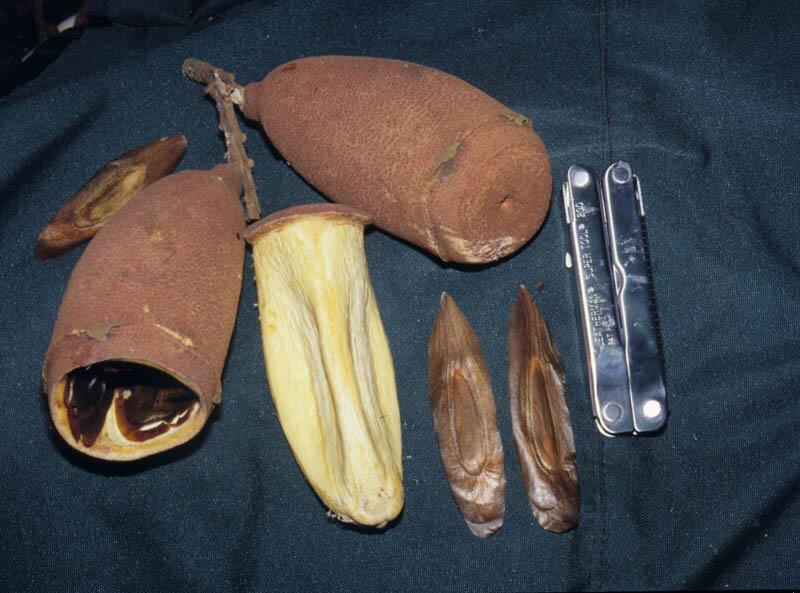Lecythidaceae
Couratari Aubl.

Kingdom: Plantae Rank: Genus Parent: Lecythidaceae Status: Valid
Common Names:
- cachimbo caspi - English, Peru
Morphological Description
Diagnosis: Androecial hood coiled inwards and then outwards to form an external flap; ovary 3-locular; seeds with a circumferential wing; embryo with leaf-like cotyledons.
Vegetative Morphology
Leaves: Leaves distichous, at end of slender twigs (<5 mm diámetro); venation eucamptodromous toward base, brochidodromous toward apex or mostly brochidromous (e.g., C. guianensis), the tertiary veins reticulate or percurrent.
Stipules: Stipules absent, at least in adults.
Exudate: Exudate absent.
Reproductive Morphology
Flowers: Flowers, zygomorphic; 3-5 cm diameter; calyx not enclosed in bud, with 6 calyx-lobes; petals 6, flat at apices; androecium with well-developed hood, the appendices inwardly coiled, forming full coil, with an extra external flap, the external flap echinate or smooth, the staminodes of hood without anthers, the stamens 10-75 inserted on staminal ring, without fodder pollen, the anthers <2 mm, with lateral dehiscence; ovary 3-locular, the style erect.
Fruit: Fruits. dehiscent, cylindric or campanulate, the operculur opening larger in diam. than diam. of seeds.
Seeds: Seeds flattened in cross section, not embedded in pulp, without aril or sarcotesta, with circumferential wing, the testa glabrous; embryo with leaf-like cotyledons.
Other
Distribution: 19 spp. Costa Rica, Panama, Colombia, Venezuela, Guyana, Surinam, French Guiana, Ecuador, Bolivia, Peru, and Brasil.
Ecology: Trees of terra firme and periodically inundated forests.